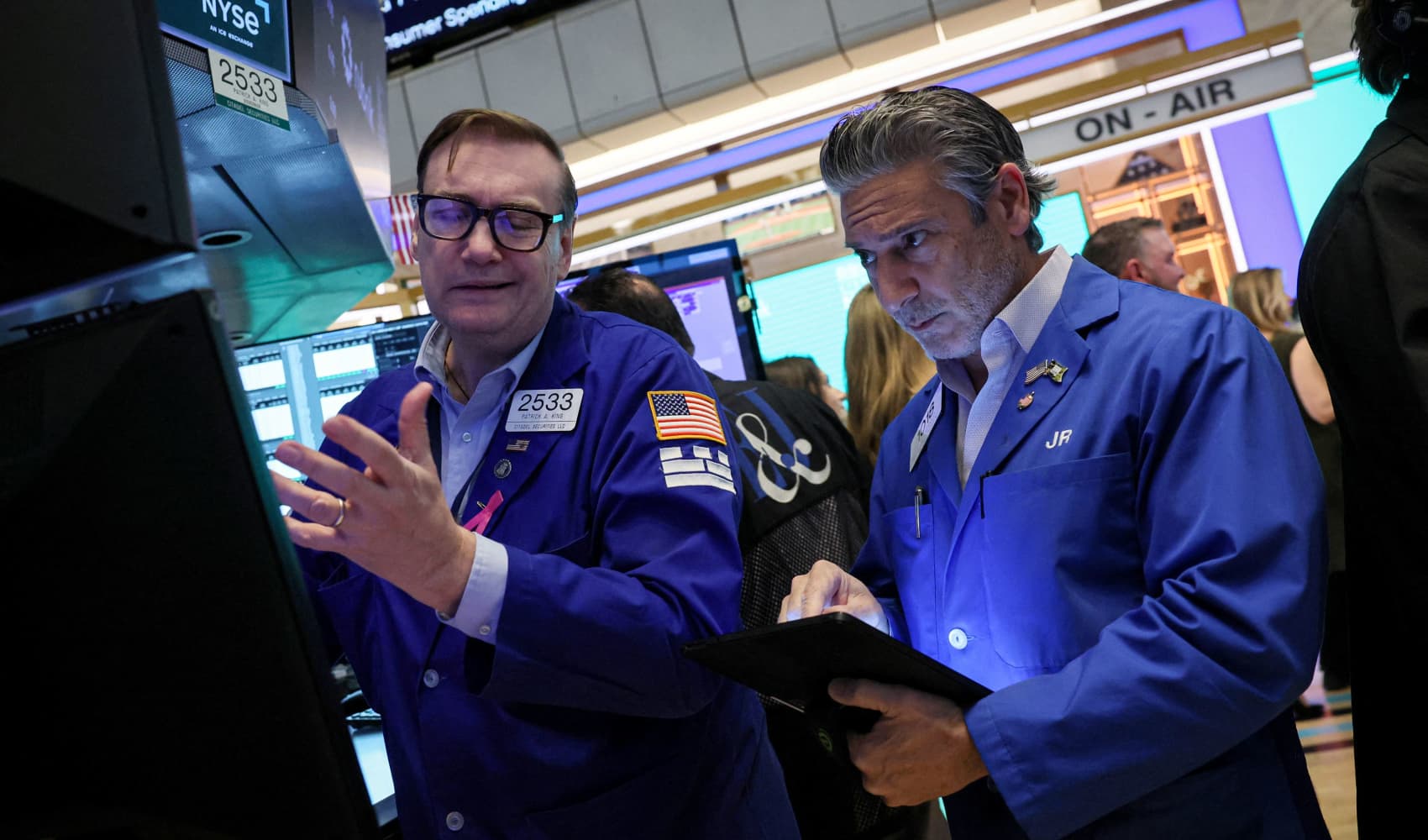
- Walmart beat holiday-quarter earnings and revenue expectations.
- The retailer also said it would acquire TV maker Vizio for $2.3 billion.
- Walmart has weathered high inflation better than many other retailers.
Walmart said Tuesday that quarterly revenue rose 6%, as shoppers turned to the big-box retailer throughout the holiday season and the company's global e-commerce sales grew by double digits.
The retail giant also announced Tuesday that it would acquire smart TV maker Vizio to accelerate growth of its advertising business. Walmart is acquiring the company for $2.3 billion, or $11.50 per share.
Get a weekly recap of the latest San Francisco Bay Area housing news. Sign up for NBC Bay Area’s Housing Deconstructed newsletter.
In a CNBC interview, Chief Financial Officer John David Rainey said customers have still shown discretion with purchases. They are putting fewer items in their baskets but shopping more frequently, he said. Electronics, TVs, computers and some other expensive items have been a tougher sell, Rainey added.
Yet, he said even after the holiday rush, Walmart saw continued sales strength.
Here's what Walmart reported compared with what Wall Street was expecting, based on a survey of analysts by LSEG, formerly known as Refinitiv:
- Earnings per share: $1.80 adjusted vs. $1.65 expected
- Revenue: $173.39 billion vs. $170.71 billion expected
In the three-month period that ended Jan. 31, Walmart's net income fell to $5.49 billion or $2.03 per share, compared with $6.28 billion, or $2.32 per share, in the year-ago period.
Money Report
Revenue increased from $164.05 billion in the year-ago period.
Walmart said it expects consolidated net sales to rise 4% to 5% in its fiscal first quarter. It also anticipates adjusted earnings of $1.48 to $1.56 per share on a pre-stock split basis.
For its fiscal 2025, the retailer expects consolidated net sales will climb 3% to 4%. Walmart anticipates adjusted earnings will be $6.70 to $7.12 per share on a pre-stock split basis.
Walmart shares closed 3% higher Tuesday after the company shared its results, outlook and acquisition news. Shares of Walmart are up more than 11% this year, outperforming the S&P 500, which is up about 4% during the same period.
Walmart's e-commerce strength
Walmart has weathered high inflation better than many other retailers. It has used its value reputation to draw in families across income levels and has leaned into new ways to make money, such as selling ads, expanding its third-party marketplace and offering a subscription-based program called Walmart+.
Comparable sales, an industry metric also known as same-store sales, rose 4% for Walmart U.S. At Sam's Club, comparable sales increased 1.9%, including fuel.
Global e-commerce sales jumped 23% year over year, topping $100 billion in total. In the U.S., e-commerce rose 17% as shoppers used curbside pickup and got orders delivered to their homes.
Customer transactions increased 4.3% compared with the year-ago period in the U.S. However, average ticket, or the amount that a customer spent, declined slightly.
Prices have fallen in some categories. Private brands made by Walmart, which tend to be cheaper, have gained popularity in the U.S. and other parts of the world.
CEO Doug McMillon said on an earnings call Tuesday that prices of general merchandise, a category that includes items such as clothing, are lower than a year ago and even two years ago for some things. For food, prices are lower for some items such as apples, eggs and deli snacks, but higher for other items such as asparagus and blackberries.
Prices of dry grocery items, paper goods and cleaning supplies are up mid-single-digit percentages compared to last year and high teens compared with two years ago.
Walmart also backed away from predictions of deflation. On the company's third-quarter earnings call in November, McMillon said the company could soon face a deflationary environment, where prices not just stabilize, but also decline. He said those lower prices could help customers pay for more discretionary items.
On Tuesday, however, Rainey told CNBC that deflation seems less likely now. "The possibility overall [of deflation] still remains, but prices are more stable than where they were three months ago," he said.
Profit push
One reason for Walmart's earnings growth? The company is selling more than just cereal, socks and shampoo.
Walmart has shifted into more profitable businesses — and that new model is a major part of its future. For instance, the retailer makes money from packing and shipping online orders for sellers that are part of its third-party marketplace. It had a delivery business that drops off purchases from major companies such as Home Depot, and local shops such as bakeries.
It's also selling more ads, posting gains for the business of about 33% globally and 22% in the U.S. year over year.
Rainey told CNBC that the Vizio acquisition will be "an accelerant" for the "high-margin, fast-growing part of our business." By using the TV's operating system, Walmart could not only show ads, but also have better data that tracks how customers engage with the ad and if it leads to purchases.
The company has also boosted efficiency by adding automation to distribution centers that replenish store shelves and fulfillment centers that keep up with online orders.
At an investor day last year, Walmart spoke about how it planned to grow profits faster than sales over the next five years.
On an annual basis, Walmart now expects to grow sales more than 5% and operating income more than 8% on average, Rainey told investors on Tuesday's earnings call.
Walmart's e-commerce business is not yet profitable, but Rainey said the company is getting closer. He said the cost of fulfillment has fallen 20% over the past year, as the company drops off more packages on each delivery route and sells related services, such as online ads.
Customers are shopping more on Walmart's website and app, which helps create those denser delivery routes. Weekly active e-commerce customers grew 17% over the past year, he said.
Expanding stores, boosting dividend
As many other companies have announced cost cuts, Walmart has done the opposite. It announced in late January that it would open or expand more than 150 stores in the U.S. over the next five years. That's on top of an aggressive plan to upgrade more than 1,400 of its existing Walmart stores to have a more modern look.
Stores that have gotten that fresh design have had higher sales within their four walls and lifted sales in the surrounding market, Rainey told investors on the earnings call. He said the renovated stores make more room for online pickup and delivery orders and have improved Walmart's reputation with shoppers.
Along with those store investments, Walmart said it would raise store manager wages to an average of $128,000 per year and make managers eligible for a bonus of up to 200% of their base salary.
It also announced a 3-for-1 stock split in late January, as shares hovered near an all-time high.
On Tuesday, Walmart said it would reward shareholders, too. It is raising its dividend by 9% this year, the largest increase in more than a decade.






